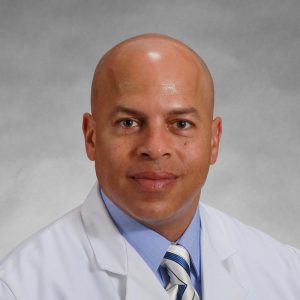When you feel sick, you want to feel better fast and you may think an antibiotic is what you need. The word antibiotic means “against life.” Any drug that kills germs in your body is technically an antibiotic. Antibiotics are life-saving drugs and using them correctly is the best way we can ensure that they continue to work for you in the future. But sometimes an antibiotic isn’t always the answer.
Antibiotics are medicines that help stop infections caused by bacteria. They do this by killing the bacteria or by keeping them from copying themselves or reproducing. Before scientists first discovered antibiotics in the 1920s, many people died from minor bacterial infections, such as
strep throat. Surgery was riskier, too. But after antibiotics became available in the 1940s, life expectancy increased, surgeries got safer, and people could survive what used to be deadly infections.

“Most illnesses are caused by two kinds of germs, bacteria or viruses,” said Dr. Kevin Gray with West Tennessee Medical Group Primary Care. “Most bacteria that live in your body are harmless. Some are even helpful. Still, bacteria can infect almost any organ. Fortunately, antibiotics can usually help.”
Only bacterial infections can be killed with antibiotics. The common cold, flu, most coughs, some bronchitis infections, most sore throats, and stomach flu are all caused by viruses. Antibiotics won’t work to treat them. Your doctor will tell you either to wait these illnesses out or prescribe antiviral drugs to help you get rid of them
According to the CDC, at least 30% of antibiotics prescribed in U.S. outpatient settings are unnecessary, meaning that no antibiotic was needed at all. Antibiotics do not work on viruses, such as those that cause colds, flu, bronchitis, sore throat (except strep) or runny noses, even if the mucus is thick, yellow, or green.
“Antibiotics are only needed for treating certain infections caused by bacteria. They won’t help some common bacterial infections, including most cases of bronchitis, many sinus infections, and some ear infections,” said Dr. Gray. “Antibiotics are critical tools for treating many common infections, such as pneumonia, and for life-threatening conditions including sepsis.”
Unnecessary prescriptions for antibiotics create new, drug-resistant strains of common diseases. Antibiotic resistance, one of the most urgent threats to the public’s health, occurs when bacteria develop the ability to defeat the drugs designed to kill them. These resistant bacteria are stronger and harder to kill. They can stay in your body and can cause severe illnesses that may not be cured with antibiotics. Some resistant bacteria can be harder to treat and can spread to other people. Each year in the United States, at least 2 million people get infected with antibiotic-resistant bacteria. At least 23,000 people die as a result.
When bacteria become resistant, antibiotics cannot fight them, and the bacteria multiply.
Taking antibiotics also kills helpful bacteria that live in your intestines. This can lead to diarrhea, and in particular, a severe form of diarrhea caused by a bacteria called C. difficile. Antibiotics may also cause allergic reactions or other unwanted side effects.
When you need an antibiotic to treat a bacterial infection, these risks are small enough that it’s worth taking the risk. But if an antibiotic won’t help you because you do not have a bacterial infection, it’s not worth the risk. Appropriate use of antibiotics is called Antibiotic Stewardship. The Centers for Disease Control and Prevention (CDC) encourages patients and families to Be
Antibiotics Aware by learning about safe antibiotic use.
“Antibiotics are powerful, life-saving drugs. If you need antibiotics, take them exactly as prescribed. Never save your antibiotics for later use or share them with family or friends,” said Dr. Gray. “Reactions from antibiotics cause one out of five medication-related visits to the emergency room.”
Prescribing antibiotics carefully and using them wisely is the key to preventing the spread of antibiotic-resistant illnesses and ensures that these life-saving drugs will be available for future generations. Talk with your healthcare professional if you have any questions about your antibiotics, including how they could interact with other medications you are taking, or if you develop any side effects. If antibiotics are not needed, ask about the best way to feel better while your body fights off the virus.
If you are feeling under the weather and not sure if an antibiotic is necessary, make an appointment at any West Tennessee Medical Group Primary Care location. To find the location nearest you, click here.
